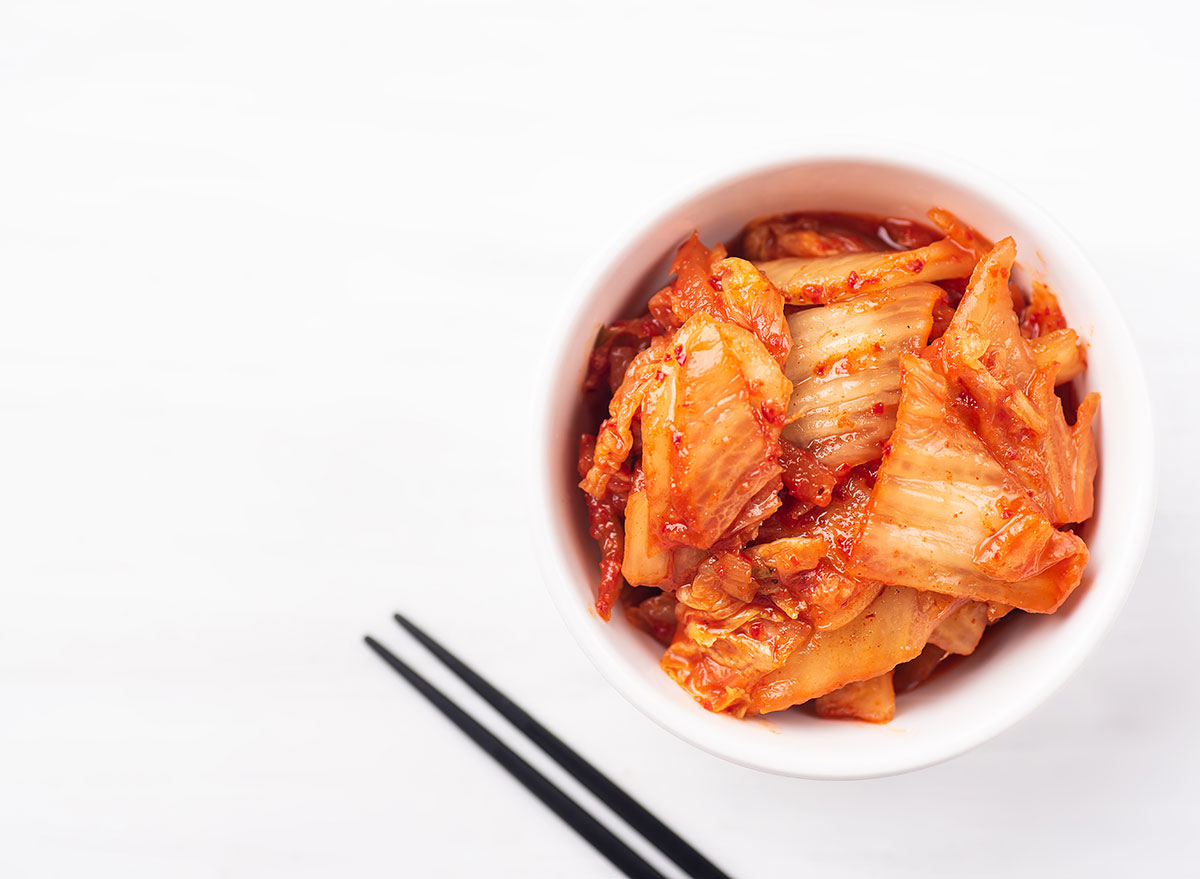This Fermented Vegetable May Help Protect Against COVID-19, New Study Finds

In the early stages of the pandemic, researchers and health experts alike were saying that countries that reported populations with lower levels of vitamin D levels were at higher risk of experiencing severe complications with COVID-19. Deficiency in vitamin B-12 is also thought to increase risk, as it can also suppress the immune system and inhibit the body’s ability to fend off disease. Now, a new study suggests that one food could be attributable to lower fatality rates from coronavirus: Fermented cabbage.
Dietitians have long said that a plant-based diet may prevent chronic disease and may even protect you from complications with infectious disease. However, Dr. Jean Bousquet of Pulmonary Medicine at Montpellier University in France suggests kimchi and sauerkraut are most effective at combating COVID-19. (Related: Sign up for our newsletter to get the latest coronavirus foods news delivered straight to your inbox.)
The study, published in the journal Clinical and Translational Allergy, found that countries, where fermented cabbage was an integral part of people’s diets, had considerably fewer deaths from the disease. Bousquet and his team of researchers primarily focused on the fatality rates in European countries, but, he also draws attention to South Korea where kimchi is a dietary staple.
So, what is it about fermented cabbage that may help explain why people in Germany—where sauerkraut is eaten regularly—and South Korea have a higher likelihood of recovering from the coronavirus?
The answer lies within the way it interacts with the enzyme ACE2. This protein adheres to cells located on the surface of the lungs and begins to form pockets, or little openings, in the organ. It’s important to keep in mind that only certain proteins can fit into these pockets and unlock the opening. SARS-CoV-2, with its spiky exterior, does have the ability to unlock the ACE2 receptor and gain entry into the lungs. This is how the virus begins—SARS-CoV-2 invades the lungs and makes copies of itself.
Fermented cabbage, when consumed in large quantities, is believed to reduce levels of ACE2 in the body, effectively making it more difficult for the virus to gain entry. In addition, fermented cabbage is also high in antioxidants, which plays a role in supporting the immune system.
Many factors may affect the low death rates in both South Korea and Germany, at just 2.14% and 4.55%, respectively, such as more people wearing masks and increased access to healthcare. Still, the study revealed that in countries where fermented cabbage is not regularly consumed, the death rates from the coronavirus were notably higher. For example, the death rate in Italy is 14.37% and in the United Kingdom, it’s even higher at 15.43%.
“Little attention has been given to the spread and severity of the virus, and regional differences in diet, but diet changes may be of great benefit,” said Dr. Jean Bousquet.
If you have yet to acquire a taste for sauerkraut or kimchi, now may be the time to do so. We recommend trying Cleveland Kitchen sauerkraut and Mother-in-Laws kimchi to help get you started.